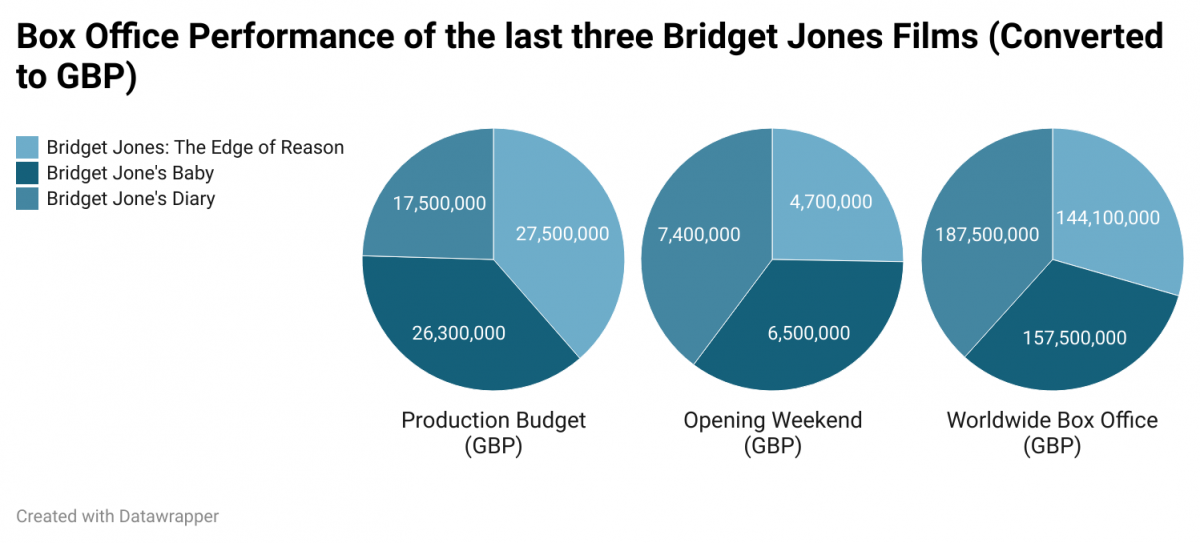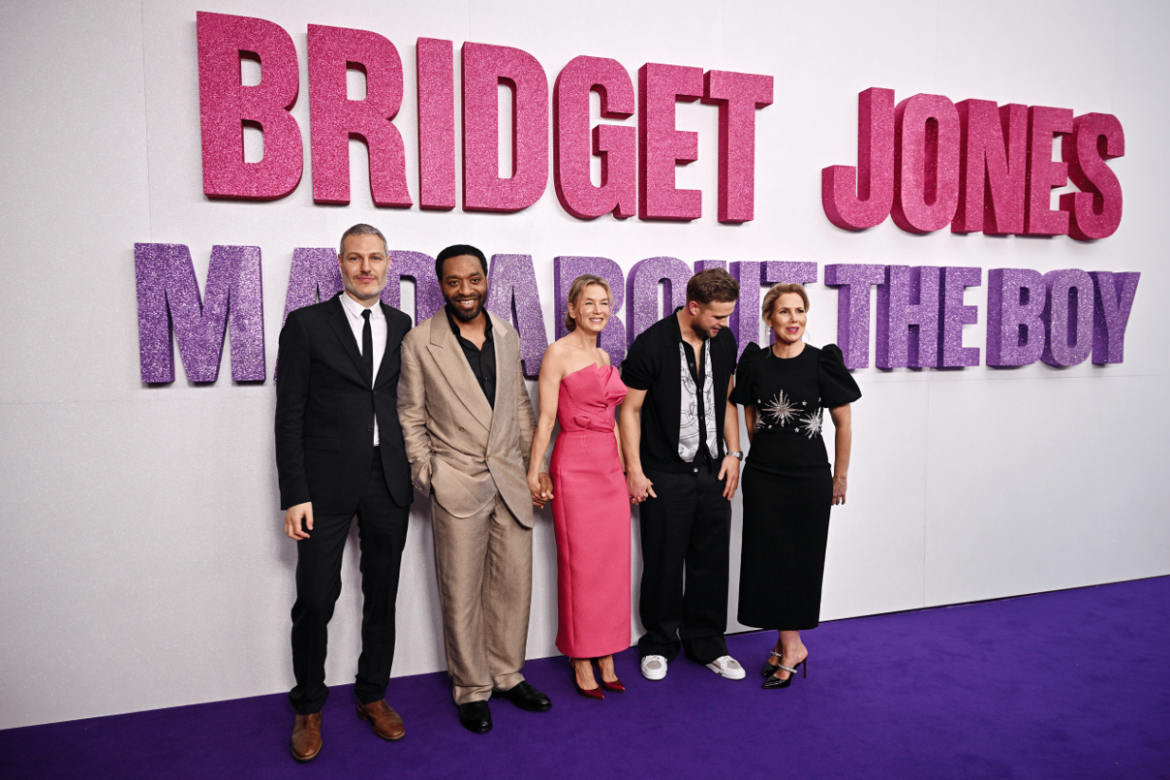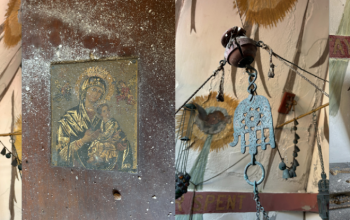It’s been nearly a quarter of a century since Bridget Jones first appeared on cinema screens. Now, she’s back. But how relevant is the plucky British heroine?
Bridget Jones: Mad About the Boy, the latest instalment in the huge rom-com franchise, is already surpassing Barbie (2023) in pre-sale tickets, signalling a growing appetite among audiences for nostalgia-driven rom-coms hitting the box office screens.
Renée Zellweger reprises her role as Bridget Jones and Hugh Grant returns as Daniel Cleaver in the upcoming film. The plot follows Jones, now a widowed mother, navigating online dating as she becomes involved with two younger men. The film, like the previous instalments, has provided plenty of talking points for audiences and critics alike.
Speaking at the movie’s London premiere last week, Zellweger addressed the age gap between the protagonist and her potential love interest in the movie.
“There’s certain things that we probably don’t need to have opinions about, and where people find love… why would that ever be a problem?” she said.
Cassandra Green, Morning Editor for Mamamia said: “The dating landscape may have evolved from answering machine messages to dating app algorithms, but that familiar flutter of hope and dread still feels exactly the same.”
Others believe that Bridget Jones’s formula may be growing old.
In her book, Guilty Pleasures, Dr Alice Guilluy, examines how contemporary Hollywood rom-coms are viewed by European audiences.
Speaking with the Kingston Courier, she said: “Bridget is indeed a very contradictory heroine: she is an emancipated working woman, but also constantly obsesses over her weight for example. And whilst the character was praised for being a ‘regular size’, a lot of the discourse around Renée Zellweger’s performance emphasised how hard she had to work to put on weight for the role.”
She added that the character’s relatable qualities of clumsiness and awkwardness significantly influenced the genre, drawing a parallel between this portrayal and media scrutiny of Nicola Coughlan’s body in Bridgerton Season 3.
Amanda Miller, co-host of the Actually Obsessed podcast, said that Jones’s portrayal as an older woman who doesn’t have life all figured out makes the story more authentic.
“I hope they wrestle with what it means to date as an older woman who is a single parent, which isn’t something I can really recall seeing much of,” she added.
Miller has also said it would be interesting to see Bridget embrace casual dating rather than seeking a long-term relationship while raising her son.
Sarah Gallagher, who also hosts Actually Obsessed, said: “I think the fact that you have a rom-com where the female protagonist is in her 50s is already something that will make the film stand out in today’s rom-com landscape.”
She added that she would love to see Jones and Cleaver discuss the #MeToo movement and address his past behaviour towards Bridget in the franchise.
Helen Fielding, author of the Bridget Jones novels, told the BBC that today’s Gen Z audience share many similarities with the heroine, such as expressing vulnerabilities, practising self-care and struggling with societal expectations.
However, Lindsay Curtis, co-host of the Charts and Hearts podcast, said the franchise has long been criticised for its portrayal of body image and outdated gender norms.
“The extreme fat shaming for a person so clearly not overweight is something that has stuck with me as a very impressionable teenager,” she said.
With the new film, Curtis hopes that the franchise will move away from those narratives and “evolve beyond outdated tropes”.
Additionally, Guilluy noted that the franchise status of Bridget Jones is significant as sequels are rare for rom-coms while comparing it to Sex and the City and the To All the Boys I’ve Loved Before Trilogy. This demonstrates how the genre has transitioned from theatrical releases to online streaming services which has fundamentally changed the way audiences consume such movies.
She said: “For about half a decade in the late 2010s, many people loudly proclaimed that the rom-com was ‘dead’. Except they weren’t. Ignoring the Hollywood/Western-centrism of this claim (romance films continue to thrive at the box-office in India and China, for example), what was dead was Hollywood star vehicles with big theatrical releases.”

According to data from The Numbers, Bridget Jones’s Diary, the first film in the franchise, had a production budget of £17,500,000 and grossed £187,500,000 worldwide across box offices.
Bridget Jones: The Edge of Reason had a budget of £27,500,000 and earned £144,100,000 while the previous movie, Bridget Jones’s Baby, released in 2016, was produced for £26,300,00 and earned £157,500,000 globally.
The figures of the opening weekends show the first movie leading at £7,400,000 followed by Bridget Jones’s Baby at £6,500,000, with Bridget Jones: The Edge of Reason earning £4,700,000.





